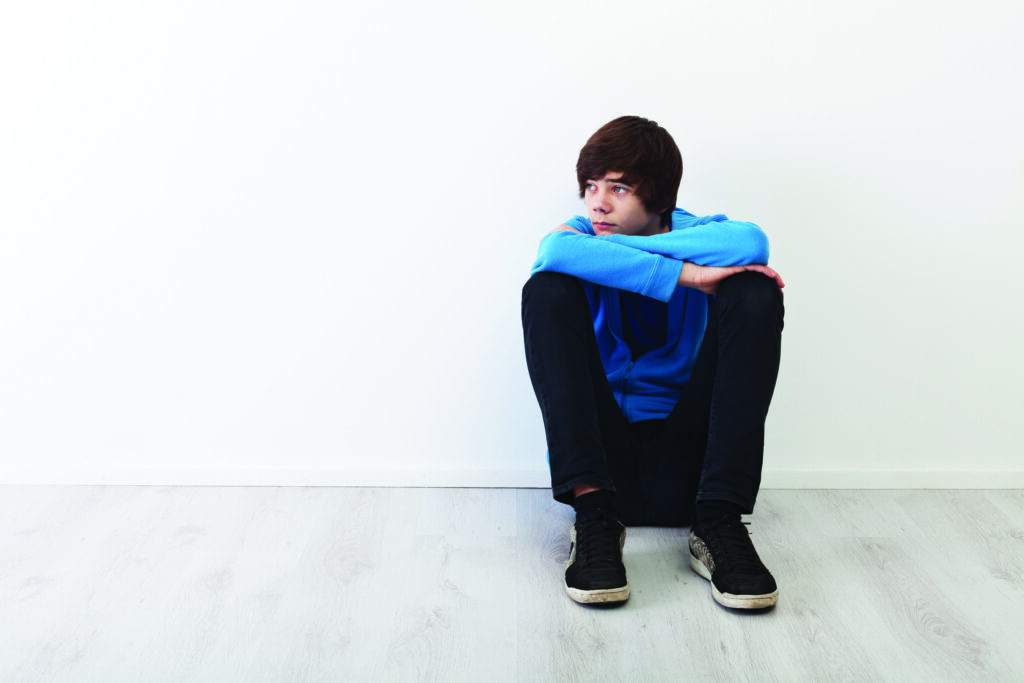Tips for Helping Children with a Sick Parent
Why is this happening to me? Who is going to take care of me? Children are likely to ask questions like these when a parent has cancer or another serious illness. “When cancer hits a younger patient, it’s usually someone who’s in his/her late 30s or 40s and has high-school age kids,” says Kathy Decker, a social worker with the Lakeland Regional Cancer Center. “It’s not too common to find a cancer patient with real little children. We’ve had a couple.”
Teens question why; younger children start wondering about themselves because they haven’t yet developed empathy, Decker says. “The fear that is greatest for them is they’ll lose their parent and they’ll be no one to take care of them,” she says. “What we encourage parents to do is speak to them as clearly and simply as possible, explaining what the illness is and how it’s going to be treated.”
Children should be told in advance if there will be chemotherapy that will cause hair loss. Parents should keep the explanation simpler for younger children. Children also should be told when a parent is having a bad day and is suffering from side effects such as vomiting. “It’s those types of things that make kids really nervous,” Decker says. “Facts need to be explained at the child’s level, with the comfort and support and love to go along with that — so they feel they are in a safe place.” It is important even if there are no visible symptoms.
Although parents may be tempted to avoid telling their children about cancer (or other important health issues), withholding the information is a bad idea. “There should not ever be secrets about an illness. Children have a radar and they know when something is wrong,” Decker explains. Being left out of their parents’ confidence is more likely to cause them stress, she says.
Suzy Foliday, a grief counselor for Good Shepherd Hospice’s Bethany Center, agrees it is important to keep children informed when a parent is diagnosed with cancer. “What we recommend is that you be as honest as you can with the child,” she says. “You don’t have to give your child every bit of information.”
Information will help the child to avoid fear, says Foliday, who works with those who have lost loved ones or who are anticipating a death. She recommends keeping a routine so the children will feel more secure.
In cases where recovery is not anticipated, it’s best to introduce the idea gradually as the disease progresses. The parent may broach the subject with a simple remark like “I’m not getting a lot better,” Decker says. Take care not to scare the child, try to act as normal as possible and let them ask questions, advises Foliday. “We also say to use concrete language with children. It’s fine to say dad has cancer and it’s affecting his lungs.”
Through their partnership with the United Way of Central Florida, the Bethany Center in Auburndale offers free child and teen grief support groups and individual counseling, plus an annual grief camp for children 6 through 16 at Circle F Dude Ranch in Lake Wales. A $10 commitment fee is charged for the camp, scheduled April 5-7, although it can be waived if necessary.
Bethany counselors are low key, offering to play age-appropriate games with the children while they discuss their feelings without pressure. “We meet people right where they are,” says Foliday. “We realize grief is a journey. It’s not like an illness. You don’t get over your grief. You learn to integrate that loss into your life.” The not-for-profit serves Polk, Highlands, and Hardee counties. Those who need help can call (863) 968-1707.
A free booklet called “When Your Parent Has Cancer: A Guide for Teens is available from the National Cancer Institute at https://pubs.cancer.gov/ncipl/detail.aspx?prodid=P223
CREDITS
story by CHERYL ROGERS
